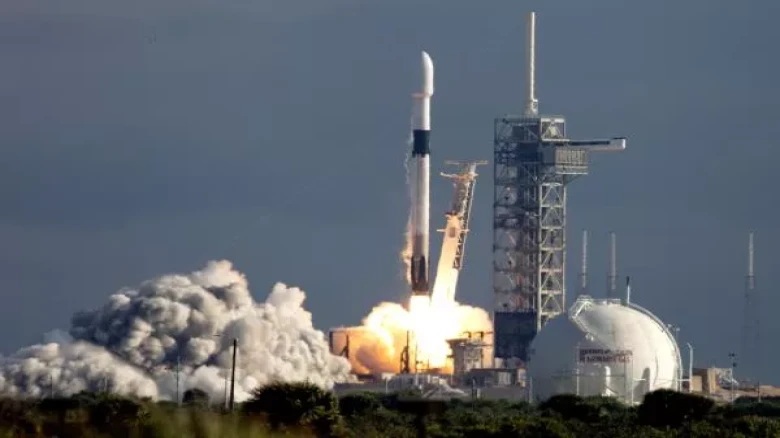Regional

A rocket launched by Elon Musk's SpaceX punched a temporary hole in the ionosphere that...
Digital Desk: A rocket launched by Elon Musk's SpaceX punched a temporary hole in the ionosphere that surrounds our planet, according to a report in spaceweather.com. The Falcon 9 rocket was launched on July 19 from the Vandenberg Space Force Base in California. According to the company's website, it is a reusable, two-stage rocket for the reliable and safe delivery of people and payloads into Earth's orbit and beyond. SpaceX also claimed it to be the world's first orbital-class reusable rocket. Falcon 9 has completed 240 launches and 198 landings.
Photos from the July 19 launch revealed a faint red glow, which was investigated by Boston University space scientist Jeff Baumgardner. He stated after reviewing the launch footage that the red glow indicated a hole in the ionosphere.
"This is a well-studied phenomenon when rockets are burning their engines 200 to 300 km above the Earth's surface," said Baumgardner to spaceweather.com.
"I looked over the launch video from July 19th. It shows the second stage engine burning at 286 km, close to the F-region peak at that time of day. Therefore, it's plausible that an ionospheric 'hole' was created," he added.
The ionosphere is at the edge of space and is packed with charged particles known as ions. According to NASA, geomagnetic storms cause aurora, with solar plasma reacting with ions to produce the stunning colors seen in the sky.
The ionosphere is essential because it reflects and modulates radio waves used for communication and navigation. A hole in the ionosphere can have an impact on GPS systems, causing them to lose a few feet of accuracy. However, it wasn't too significant at this time, according to Newsweek.
With increasingly powerful rockets, the influence of launches on the ionosphere could grow in the future, leading to more serious repercussions for GPS, according to it.
"Humans are entering an era in which rocket launches are becoming more common and frequent due to the lower cost of reusable rockets. Meanwhile, mankind is creating more powerful rockets to transport freight to distant worlds. These two factors will gradually affect the middle and upper atmosphere more, and it is worthwhile to pay attention to that," said Charles CH Lin of Taiwan's National Cheng Kung University.
A similar incident involving the same rocket happened earlier too. According to Science Times, on August 24, 2017, Falcon 9 was launched from Vanderberg Space Force Base with the FORMOSAT-5 payload.
Due to its lightweight, the rocket took a vertical path rather than traveling parallel to the Earth's surface, causing shockwaves. As a result, it ruptured a hole in the ionosphere's plasma.
The same incident happened again on June 19, 2022, when the Falcon 9 rocket was launched, the outlet further said.
Leave A Comment